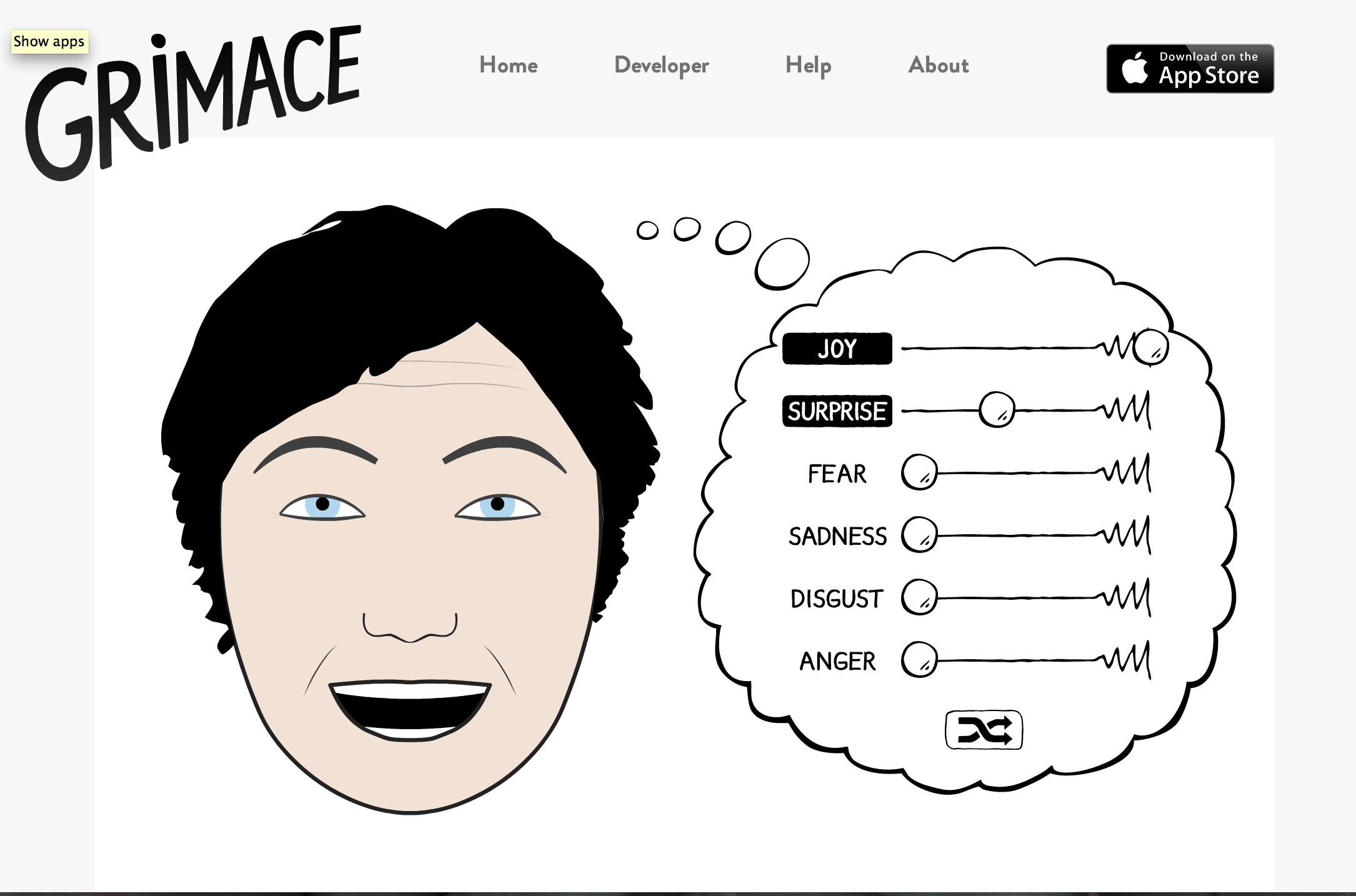The grimace facial expression is a fascinating subject that captures the complexity of human emotions. Often associated with discomfort, pain, or even humor, a grimace can convey a wealth of information without a single word being spoken. Understanding this expression not only enhances our emotional intelligence but also improves our communication skills.
In this article, we will delve into the various aspects of the grimace facial expression, exploring its psychological, social, and cultural significance. We will also examine how this expression is interpreted in different contexts and its implications for our daily lives. By the end of this comprehensive guide, you will have a deeper appreciation for this seemingly simple yet profound facial expression.
This article is structured to provide you with a thorough understanding of the grimace facial expression, supported by reliable data and expert insights. Whether you are a psychology enthusiast, a communication professional, or just someone curious about human expressions, this article will offer valuable information that resonates with you.
Table of Contents
- Defining the Grimace Facial Expression
- Psychological Aspects of Grimacing
- Social Contexts of Grimace Expressions
- Cultural Interpretations of Grimaces
- Biographical Insights on Grimace in Media
- Statistical Insights on Facial Expressions
- Impact of Grimace on Communication
- Conclusion and Final Thoughts
Defining the Grimace Facial Expression
The grimace facial expression is characterized by an involuntary movement of facial muscles that conveys discomfort, pain, or disapproval. It often involves the tightening of the facial muscles, particularly around the mouth and eyes. Grimacing can occur due to various stimuli, including physical pain, emotional distress, or even as a reaction to something humorous.
Common Triggers for Grimacing
- Physical pain (e.g., injury, illness)
- Emotional distress (e.g., anxiety, fear)
- Disapproval or disgust (e.g., negative experiences)
- Humor (e.g., playful teasing)
Psychological Aspects of Grimacing
Understanding the psychology behind grimacing is crucial for interpreting its meaning accurately. Grimaces can serve as nonverbal cues that communicate our internal states to others. They can also reflect our social conditioning and cultural background.
The Role of Grimaces in Emotional Expression
Research shows that facial expressions, including grimaces, play a significant role in how we convey and interpret emotions. When someone grimaces, it often activates a mirror neuron response in the observer, leading to empathetic understanding.
Social Contexts of Grimace Expressions
Grimacing is not just a personal response; it also has social implications. In many cultures, a grimace can serve as a social signal, indicating discomfort or a desire for support. Understanding these social cues can enhance interpersonal communication.
Grimacing in Different Social Situations
- In medical settings: A grimace may indicate pain or discomfort, prompting caregivers to provide assistance.
- Among friends: A playful grimace can indicate teasing and strengthen social bonds.
- In professional environments: A grimace may signal disapproval or disagreement during discussions.
Cultural Interpretations of Grimaces
Interpreting grimaces can vary significantly across cultures. While some cultures may view grimacing as a sign of weakness, others may see it as a natural expression of human experience. Understanding these cultural nuances is essential for effective communication in a globalized world.
Cultural Differences in Facial Expressions
Facial expressions can hold different meanings in various cultures. For example, in some Asian cultures, showing discomfort or displeasure through a grimace may be frowned upon, while in Western cultures, it may be more openly expressed.
Biographical Insights on Grimace in Media
The grimace facial expression has often been depicted in various media, including films, television, and advertising. One notable example is the character Grimace from McDonald’s, which has become an iconic representation of the brand.
Data on Grimace in Media
| Name | Role | Appearance Year | Significance |
|---|---|---|---|
| Grimace | Brand Mascot | 1971 | Symbol of friendship and fun |
Statistical Insights on Facial Expressions
Studies have shown that facial expressions account for a significant portion of human communication. Research indicates that up to 55% of communication is nonverbal, with facial expressions playing a crucial role.
Statistics on Facial Expressions and Communication
- 55% of communication is nonverbal.
- 93% of emotional communication is conveyed through nonverbal cues.
- A grimace can trigger empathetic responses in 80% of observers.
Impact of Grimace on Communication
Understanding the impact of grimaces on communication can enhance personal and professional interactions. Recognizing a grimace can provide insights into how others are feeling and can guide responses accordingly.
Improving Communication Skills
By being aware of grimaces and other facial expressions, individuals can improve their emotional intelligence and communication skills. This understanding can foster better relationships and enhance social interactions.
Conclusion and Final Thoughts
In conclusion, the grimace facial expression is a powerful nonverbal cue that conveys a range of emotions. From its psychological and social implications to its cultural interpretations, understanding the grimace can significantly enhance our communication skills and emotional intelligence. We encourage you to observe grimaces in various contexts and reflect on their meanings.
Feel free to leave a comment below, share this article, or explore more about human expressions and their impact on communication. Your thoughts and engagement are always welcome!
Thank you for taking the time to explore the intriguing world of grimace facial expressions with us. We look forward to welcoming you back for more insightful articles in the future!
You Might Also Like
Discovering The Magic Of Bioluminescent Beaches: Nature's Nighttime SpectacleWhite Mountain Puzzle: The Ultimate Guide To Choosing The Perfect Puzzle For You
Thomas "Hitman" Hearns: The Legendary Boxer Who Redefined The Sweet Science
Christmas In The Park: A Magical Celebration Of The Holiday Season
Holding Funeral Home Obituaries: A Comprehensive Guide
Article Recommendations
- Jameliz Onlyfan Leak
- David Lee Roth Daughter
- Shiloh Jolie Pitt 2024
- Subhashree Sahu Viral Mms
- Alex Start X New 2024 Age
- Jelly Bean Brains Only
- Loni Willison Now
- Daniel Ezra Wife
- Purenudism
- Tina Trahan Age


